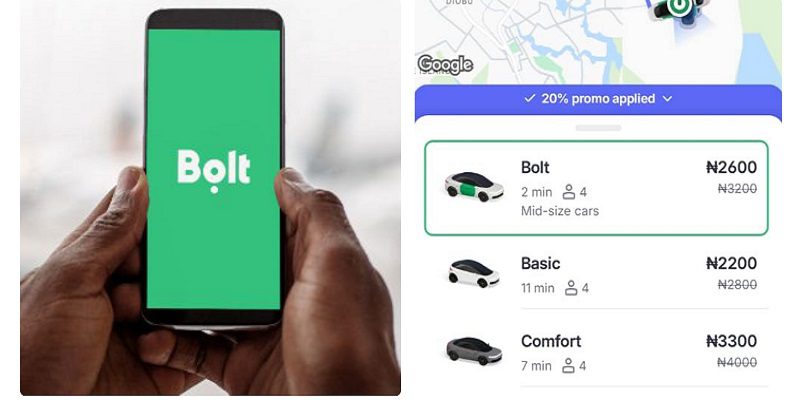Physical Address
60 Ekwema Cres, Layout 460281, Imo
Physical Address
60 Ekwema Cres, Layout 460281, Imo

Bolt drivers in Port Harcourt plan to hike fares by 50%, accusing the app of slashing prices amid rising costs. The drivers, under the Amalgamated Union of App-based Transporters of Nigeria (AUATON) in Rivers state, have unanimously agreed to increase their fares by 50% on every trip accepted via the Bolt app unless there is a surge pricing of 1.5 times or more. This fare hike is a direct response to Bolt’s decision to reduce ride prices while increasing its commission, which the drivers say has made their work unsustainable.
Comrade Dennis, the state task force chairman of AUATON, spoke on the matter, highlighting that drivers bear all operational costs like vehicle maintenance, fuel, data, and other risks with no financial help from Bolt except for connecting riders to drivers. According to him, this fare increase seeks to ensure drivers receive fair payment and can continue to operate sustainably. They have appealed to passengers to support this resolution for the benefit of the drivers’ livelihood.
Read Next: MTN has Announced Plans to Connect 8 Million Homes Using Fibre X by 2028
The background to this fare hike involves sharp increases in the cost of essential inputs for driving. Under the previous government of former President Muhammadu Buhari, fuel sold for less than ₦400 per litre, and a trip from GRA to Choba in Port Harcourt cost about ₦2,500 to ₦3,000. Today, under President Bola Tinubu’s administration, fuel prices have more than doubled to about ₦900 per litre, but the trip fares have not increased proportionally, still ranging roughly from ₦2,700 to ₦3,500. Spare parts prices have also surged significantly; for example, brake pads that sold for ₦1,500 to ₦1,800 in 2023 now cost between ₦7,000 and ₦8,000.

Comrade Amos Omoruyi, the Rivers state chairman for AUATON, supports the 50% fare increase, calling it a fair and necessary measure aimed at balancing the economic realities for drivers. He emphasized that this decision is not a protest but a survival strategy to cope with soaring operational costs. Omoruyi also called on Bolt, inDrive, and other ride-hailing companies to reduce their commission rates from over 25% to a fairer 10%, which would make it easier for drivers to continue using the app’s standard rates without resorting to fare hikes.
This ongoing dispute between drivers and ride-hailing companies centers around pricing control. While Bolt and similar platforms claim the right to set prices, drivers argue these companies simply act as marketplaces that connect riders to drivers and therefore should not dictate fares unilaterally. Drivers supply all the necessary resources for each trip, from cars to fuel, yet face limits on earning potential due to fare controls imposed by the apps.
This conflict is not unique to Port Harcourt. In Abuja, e-hailing drivers have similarly set their own pricing, pegging it at ₦450 per kilometer. In Abeokuta, drivers have reportedly renegotiated fares, sometimes doubling prices, in response to the apps’ pricing models that they say do not cover their costs. Drivers in these cities lament making very little profit after expenses, with some spending large sums on vehicle maintenance just to stay in business.
Comrade Omoruyi recently defended drivers accused of extorting passengers for extra fees on top of app prices. He said those accusations are false and harm the reputation of drivers who are simply trying to survive economically. He explained that since the removal of the fuel subsidy in 2023, the cost of running a vehicle has increased drastically, but Bolt and other apps have yet to adjust fares accordingly. Many drivers have had to leave the business as it became unsustainable.
Read Next: Europe-Africa Connectivity Gets a Boost as the Medusa Cable Reaches Marseille
As a result, some drivers have independently increased fares to keep afloat. Omoruyi urged the public to understand drivers are not being fraudulent by asking for extra fees; rather, they are parents and workers struggling to support themselves and their families. The occasional extra charges are a consequence of Bolt’s failure to implement fare prices that truly reflect market realities and cover drivers’ expenses.
In summary, Bolt drivers in Port Harcourt plan to hike fares by 50% as a means for fair compensation after accusing the app of slashing prices while raising commissions. They call on the company to reduce its commission from over 25% to 10% to make fares sustainable without hikes. The drivers’ move reflects wider tensions across Nigerian cities over fare control, operational costs, and drivers’ earning viability in the current economic climate.
Was this information useful? Drop a nice comment below. You can also check out other useful contents by following us on X/Twitter @siliconafritech, Instagram @Siliconafricatech, or Facebook @SiliconAfrica.